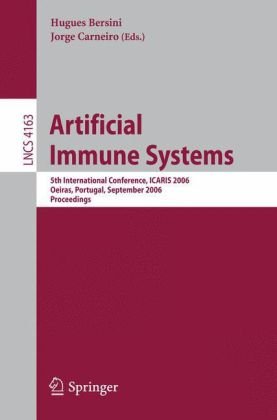

Most ebook files are in PDF format, so you can easily read them using various software such as Foxit Reader or directly on the Google Chrome browser.
Some ebook files are released by publishers in other formats such as .awz, .mobi, .epub, .fb2, etc. You may need to install specific software to read these formats on mobile/PC, such as Calibre.
Please read the tutorial at this link: https://ebookbell.com/faq
We offer FREE conversion to the popular formats you request; however, this may take some time. Therefore, right after payment, please email us, and we will try to provide the service as quickly as possible.
For some exceptional file formats or broken links (if any), please refrain from opening any disputes. Instead, email us first, and we will try to assist within a maximum of 6 hours.
EbookBell Team

4.4
102 reviewsICARIS 2006 is the ?fth instance of a series of conferences dedicated to the comprehension and the exploitation of immunological principles through their translation into computational terms. All scienti?c disciplines carrying a name that begins with “arti?cial” (followed by “life,” “reality,” “intelligence” or “- munesystem”) aresimilarlysu?ering froma veryambiguousidentity.Their axis of research tries to stabilize an on-going identity somewhere in the crossroad of engineering (building useful artifacts), natural sciences (biologyor psychology— improving the comprehension and prediction of natural phenomena) and t- oretical computer sciences (developing and mastering the algorithmic world). Accordingly and depending on which of these perspectives receives more s- port, they attempt at attracting di?erent kinds of scientists and at stimul- ing di?erent kinds of scienti?c attitudes. For many years and in the previous ICARIS conferences, it was clearly the “engineering” perspective that was the most represented and prevailed through the publications. Indeed, since the o- gin of engineering and technology, nature has o?ered a reserve of inexhaustible inspirations which have stimulated the development of useful artifacts for man. Biology has led to the development of new computer tools, such as genetic - gorithms, Boolean and neural networks, robots learning by experience, cellular machines and others that create a new vision of IT for the engineer: parallel, ?exible andautonomous.Inthis type of informatics,complexproblemsareta- led with the aid of simple mechanisms, but in?nitely iterated in time and space.